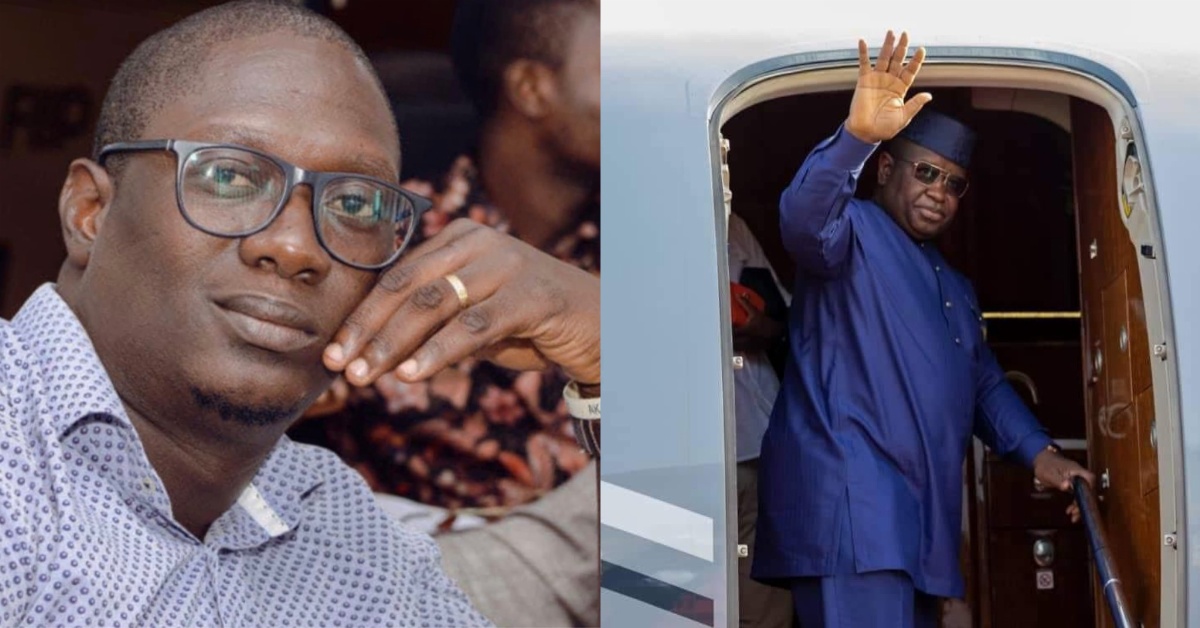Renowned Sierra Leonean journalist Thomas Dixon, during a recent interview on AYV’s Wake Up Sierra Leone television show, discussed President Julius Maada Bio’s international travels over the last six months. According to Dixon, the President made 15 trips abroad, some statutory and others discretionary.
Dixon pointed out that while several of these trips were necessary for the President to attend crucial global events like the United Nations Summit, African Union, and ECOWAS summits, others were not essential. “The President has to be there,” Dixon said, referring to statutory trips, “but there are others that are completely discretionary,” he emphasized, citing a recent symposium the President attended, where he was not even the keynote speaker.
In his interview, Dixon highlighted the need for increased accountability regarding the President’s travels, noting that these trips are funded by public money.
He stressed, “It is our money, and it is also good that people are demanding accountability on presidential travelling. What is the President travelling for?”
Dixon raised concerns about the nation’s economic state, pointing to a significant decline in foreign reserves, which fell from 2.7 months’ worth of import cover to a reported 2.4 months, with rumors suggesting an even sharper drop.
He listed some of the President’s travels, explaining the distinction between statutory and discretionary trips. For instance, President Bio’s visit to the World Bank International Development Association summit in Kenya was necessary, as was his attendance at the 63rd Ordinary Assembly of the ECOWAS Heads of State in Nigeria.
However, trips like the one to Paris to speak on clean cooking were classified as discretionary by Dixon. “The Foreign Minister or Ambassador could handle some of these meetings,” he remarked, referencing President Bio’s visit to the United Arab Emirates in March, which he believed could have been delegated.
Dixon also expressed frustration with the government’s progress, stating, “We should not be 82% food insecure.” He referred to a World Food Programme report highlighting that 82% of Sierra Leoneans are food insecure, with 18% severely affected.
He argued that while the government has achieved some successes, such as pledges of over $800 million from international investors, these achievements have not translated into tangible improvements for the majority of the population.
He concluded by stressing that, after six years in office, the government should no longer be taking “baby steps” but should be making significant strides in addressing pressing issues like food insecurity, health indicators, and economic stability.


 4 Comments
4 Comments 









Dixon, you are wasting your breath and time. This president does not countenance criticism. This is first time you are referencing his unnecessary travels. And surely it will not be the last. Talking about this president’s travels is like throwing water on a duck’s back. If the legislature is worth its salt it is the institution that should apply the pressure, ask the questions and demand accountability of the executive.
The larger questions this government should be asked to answer now in the midst of these travels are A) what is its plan for moving the population out of poverty? B) how many people have been moved out of poverty between 2018 and 2024? C) how many people have spilled into poverty in the same period? D) how many have access to clean water, electricity, sanitation, healthcare, food security etc in the same period? Let the president, vice president or chief minister answer provide verifiable answers
Sierra Leonean journalists are never current. It is not a rumour but a fact. According to the horse’s mouth, the IMF – the loan shark of last resort, the foreign reserves have been depleted to less than two months of import and the country continues to be buried in an avalanche of foreign currency-demominated debt. The £ has just crashed the Le30,000 barrier this week. So more economic pain is hovering on the horizon.
The Government’s reckless spending is a personal mission of the President to get us over the 100 per cent debt/GDP ratio – the worst since the last SLPP regime of Kabbah Tiger.
Anyone remembers the “Spending like Drunken Sailors” speech of then opposition leader Bio? Who is now a “debt and spend” drunkard?
I agree to some extent that some Sierra Leone journalists are not conversant with current affairs. However, a good number of them are fully aware of what is happening nationally and internationally but are clouded by TRIBALISM and PARTISAN sentiments. Most are political party card carriers which compromise their work as journalists. Who doesn’t know that the illegitimate President Julius Maada Bio flies in and out of the country every single minute looting our national treasury committing financial crimes all this while since 2018 to date? They know it but decide to keep their unpatriotic and stinking mouths shut. In two months time, there will be no money in the country’s reserves to pay salaries and run the state. Whose fault? It’s the deafening silence of our moral guarantors ie civil societies, journalists, religious leaders, media houses, etc who have been collecting bribes from Maada Bio who has now turned Sierra Leone to an inheritance property. Allah will fight our battle insha’Allah!